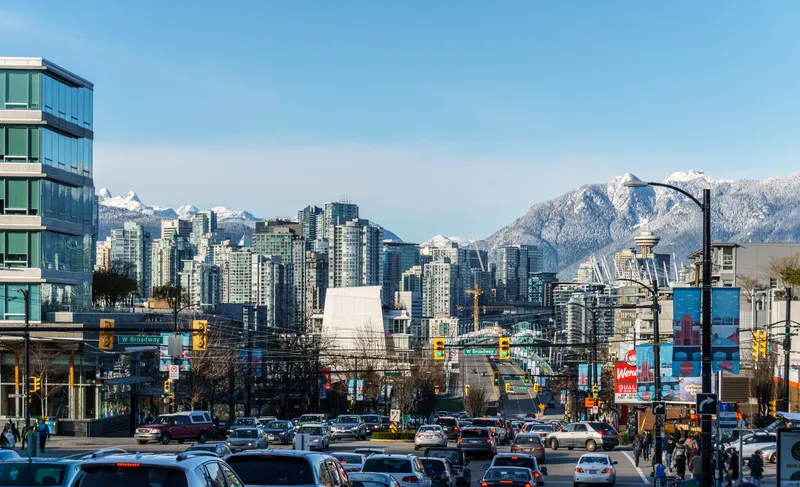Two-thirds of Americans (68 per cent) believe the federal government should invest more than it does now on roads, bridges and mass transit systems, according to a new American Automobile Association (AAA) omnibus survey of 2,013 adults. Only five per cent of respondents believe the federal government should spend less on transportation. These results come as AAA urges members of Congress to increase the fuel tax, which will address significant transportation safety and congestion issues nationwide.
The
June 12, 2014
Read time: 3 mins
Two-thirds of Americans (68 per cent) believe the federal government should invest more than it does now on roads, bridges and mass transit systems, according to a new 1765 American Automobile Association (AAA) omnibus survey of 2,013 adults. Only five per cent of respondents believe the federal government should spend less on transportation. These results come as AAA urges members of Congress to increase the fuel tax, which will address significant transportation safety and congestion issues nationwide.
The survey shows that: about half of Americans are willing to pay higher fuel taxes per month on average for better roads, bridges and mass transit systems; nearly three times as many people are more likely to vote for a member of Congress who supports increased federal spending on transportation than would be less likely; approximately two-thirds of Americans agree that taxes on gasoline and diesel consumption are appropriate for transportation funding; and more people believe that roads, bridges and transit systems have declined in quality over the previous three years than those who believe the quality has improved.
"Americans are fed up with record-long commutes, unsafe highways and never-ending potholes caused by political inaction," said Bob Darbelnet, AAA president and CEO. “Congress must prevent severe maintenance delays during the height of the summer driving season by preventing a Highway Trust Fund bankruptcy in August."
AAA supports a federal gas tax increase, provided the funds go towards projects that ease congestion and improve safety. The gas tax is the most efficient and fair method available to pay for transportation maintenance and improvements in the near term. An increase in fuel taxes, spent wisely, should help reduce the estimated US$324 per year in additional vehicle repairs and operating costs that the average driver currently spends due to poor road conditions.
The Department of Transportation expects the federal Highway Trust Fund will run out of money this summer without Congressional action, which would delay transportation maintenance and improvement projects nationwide.
"Many of us are willing to pay a little more if it means we will have access to better roads, bridges and transit systems," continued Darbelnet. "It is time for our nation's leaders to stand with those in Congress who support improving our country's transportation system."
The federal Highway Trust Fund is supported by the 18.4 cents per gallon gas tax and 24.4 cents per gallon tax on diesel. Congress has not raised this tax since 1993. Due to inflation and increased fuel economy, the purchasing power of the current tax has been cut nearly in half.
The survey shows that: about half of Americans are willing to pay higher fuel taxes per month on average for better roads, bridges and mass transit systems; nearly three times as many people are more likely to vote for a member of Congress who supports increased federal spending on transportation than would be less likely; approximately two-thirds of Americans agree that taxes on gasoline and diesel consumption are appropriate for transportation funding; and more people believe that roads, bridges and transit systems have declined in quality over the previous three years than those who believe the quality has improved.
"Americans are fed up with record-long commutes, unsafe highways and never-ending potholes caused by political inaction," said Bob Darbelnet, AAA president and CEO. “Congress must prevent severe maintenance delays during the height of the summer driving season by preventing a Highway Trust Fund bankruptcy in August."
AAA supports a federal gas tax increase, provided the funds go towards projects that ease congestion and improve safety. The gas tax is the most efficient and fair method available to pay for transportation maintenance and improvements in the near term. An increase in fuel taxes, spent wisely, should help reduce the estimated US$324 per year in additional vehicle repairs and operating costs that the average driver currently spends due to poor road conditions.
The Department of Transportation expects the federal Highway Trust Fund will run out of money this summer without Congressional action, which would delay transportation maintenance and improvement projects nationwide.
"Many of us are willing to pay a little more if it means we will have access to better roads, bridges and transit systems," continued Darbelnet. "It is time for our nation's leaders to stand with those in Congress who support improving our country's transportation system."
The federal Highway Trust Fund is supported by the 18.4 cents per gallon gas tax and 24.4 cents per gallon tax on diesel. Congress has not raised this tax since 1993. Due to inflation and increased fuel economy, the purchasing power of the current tax has been cut nearly in half.








